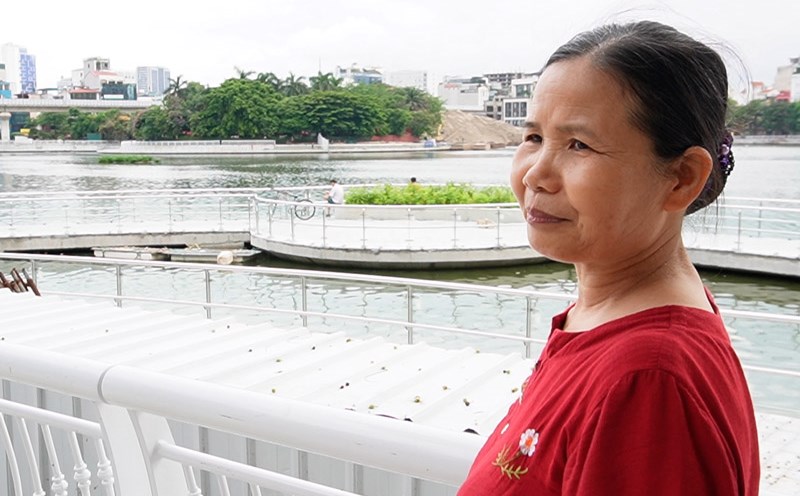Since the beginning of 2025, private houses in Hanoi have maintained a slight price increase, especially in the segment under 8 billion VND. According to market research from OneHousing, private houses are the second most popular type of real estate in Hanoi, after apartments, this is also the segment with a rapid price increase in 2024. In 2025, although the growth rate has slowed down, private house prices will still increase, with an average increase of 200 - 400 million VND/unit in many areas compared to the end of 2024.
In Thanh Xuan district, the private house segment with an area of 30 - 50m2 in wards such as Thanh Xuan Bac, Thanh Xuan Trung, Trung Van, Khuong Dinh, Nhan Chinh, in the alley of avoiding cars, the selling price increased from 6.1 - 7.6 billion VND/house to 6.5 - 8 billion VND/house, equivalent to an increase of 400 million VND at the highest level.
Meanwhile, in Ha Dong district, houses with an area of 30 - 55m2, cars parked at the door, the price increased from 7 - 7.7 billion VND/house to 7.3 - 8 billion VND/house. In remote areas such as Yen Nghia, Kien Hung, Duong Noi, La Khe, Phu Lam, Ha Cau, where cars cannot enter, the price has also been adjusted from 3.7 - 4.9 billion VND/house to 3.9 - 5.1 billion VND/house, an increase of about 200 million VND/house.
In Nam Tu Liem district, private houses of 30 - 40m2 in Me Tri, My Dinh, Trung Van, Phu Do, and alleys are not wide enough for cars, the selling price increased from 5 - 5.8 billion VND/house to 5.3 - 6 billion VND/house. For cars parked at the door, the price increased from 7 - 7.8 billion VND/unit to 7.3 - 8 billion VND/unit, an increase of a maximum of 300 million VND.
Recorded in Cau Giay district, private houses with an area of 25-40m2, built 3-5 floors, 50 - 100m from the car road, the asking price increased from 6.5 - 7 billion VND/house to 6.7 - 7.1 billion VND/house, equivalent to an increase of 200 million VND.
In Ba Dinh and Dong Da districts, the average increase also ranges from 200 - 300 million VND/unit for houses in alleys.
However, the segment over 8 billion VND recorded almost unchanged selling prices, showing a clear differentiation between segments.
The phenomenon of private house prices under 8 billion VND increasing slightly in Hanoi in early 2025 stems from many factors, including limited supply, high actual demand and the psychology of prioritizing investment in residential real estate.
According to Ms. Nguyen Thu Huong - a broker in Cau Giay and Nam Tu Liem districts, the number of investors participating in the market has decreased to 1/5 compared to last year, but mainly professional people, often having close relationships with brokers. When a house with a price 200-300 million VND lower than the market appears, they quickly buy it to wait for the opportunity to resell it at a price equal to or higher, thereby maintaining the price increase for this segment.
Mr. Do Ngoc Thang - Regional Sales Director at OneHousing - commented that the land fund in Hanoi's inner city is increasingly scarce, while the population continues to increase. The actual demand for housing, investment, business or rental in central districts is always high, but the supply of new private houses is not enough. This creates pressure to increase prices for existing houses, especially in the segment under 8 billion VND - prices suitable for many subjects from home buyers to small investors.
The slight increase in private house prices under 8 billion VND not only reflects market trends but also directly affects transactions and the behavior of Hanoi real estate buyers.
A survey from OneHousing shows that private house transactions in Hanoi in early 2025 are less vibrant than the same period in 2024. The segment over 8 billion VND has almost no significant liquidity, while houses under 8 billion VND still record good transactions, especially at a price under 5 billion VND - the most searched segment. This shows that buyers are more cautious, focusing on affordable houses that are suitable for their financial capacity.











